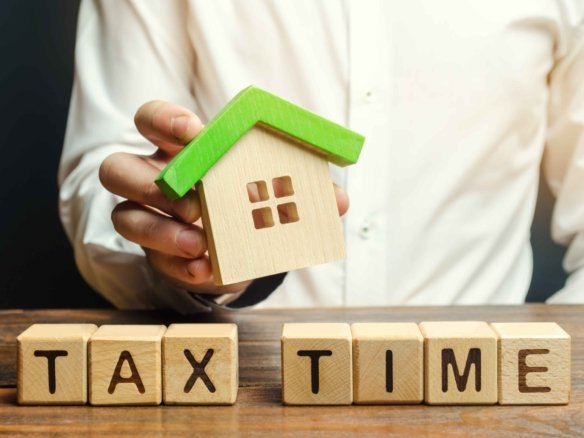Building a real estate portfolio through tax deed auctions can be a smart and affordable way to start investing. These auctions give you the chance to purchase properties at a fraction of their market value, often with minimal competition. However, this strategy requires some research, patience, and the right approach to minimize risk and maximize return. In this guide, we’ll walk you through the steps you need to follow to successfully build your investment portfolio using tax deed properties.
Understanding What Tax Deed Auctions Are
Before jumping in, it’s important to understand what tax deed auctions actually involve. When property owners fail to pay their property taxes for a certain period, the county or municipality has the legal right to sell the property to recover the owed taxes. This sale is typically done through a public auction, and the winning bidder receives the deed to the property—hence the term “tax deed auction.”
Unlike tax lien sales, where investors only purchase the lien and not the actual property, tax deed auctions offer full ownership. That’s what makes them attractive to real estate investors looking for undervalued properties they can add to their portfolio.
Researching Properties Before the Auction
Successful investing starts with solid research. Each property offered in a tax deed auction is unique, and it’s your job to understand its potential before bidding. Counties typically publish lists of properties going to auction weeks in advance. These lists often include basic information like parcel numbers, addresses, and the amount of taxes owed.
Start by reviewing this list and narrowing down your options based on location, property type, and estimated value. Use online tools like your county’s property appraiser website or platforms like TDHunter.com to dig deeper into property details, ownership history, and comparable sales in the area.
You should also try to physically inspect the property if possible. While you usually can’t go inside, driving by can give you a sense of the neighborhood and exterior condition. Be on the lookout for red flags like boarded-up windows, overgrown yards, or major structural damage.
Estimating the True Cost of Ownership
Buying a property at a tax deed auction doesn’t mean you’re getting it free and clear. It’s important to account for all possible expenses before and after the auction. This includes unpaid utility bills, municipal liens, or homeowner association dues. Some of these costs may survive the auction and become your responsibility once you take ownership.
Beyond these potential liabilities, factor in the cost of any necessary repairs, upgrades, or maintenance. A property that looks like a bargain might require thousands of dollars in work before it can be rented or sold. Also, consider holding costs such as insurance, property taxes, and legal fees.
Attending and Bidding at the Auction
Most tax deed auctions are held either in person at the county courthouse or online through a government-hosted platform. Before the auction, you’ll need to register and, in some cases, place a deposit. Once you’re registered, you’re eligible to bid.
During the auction, the property goes to the highest bidder. It’s important not to get caught up in a bidding war. Set your maximum bid based on your research and stick to it. Emotional decisions at this stage can lead to overspending and reduce your profit margin.
If you win the bid, you’ll typically have to pay the full amount within a short period—sometimes as quickly as 24 to 72 hours. Once payment is confirmed, the county will issue you a tax deed, officially transferring ownership of the property to you.

Rehabbing and Renting or Reselling
Once you’ve acquired the property, the next step depends on your investment strategy. Some investors choose to rehab the property and flip it for a quick profit. Others prefer to hold onto it as a rental, creating a steady stream of passive income.
If the property is in poor condition, hire a licensed contractor to handle any repairs or updates. Depending on your target market, upgrades like fresh paint, new flooring, or kitchen improvements can increase resale value or rental income significantly.
Before renting the property, make sure it complies with local housing codes and passes any necessary inspections. If you’re planning to sell, work with a local real estate agent who understands the area and can help you market the property effectively.
Growing Your Portfolio Over Time
Once you’ve successfully completed your first tax deed property investment, use the experience to refine your approach for future deals. Learn from any mistakes, take note of what worked well, and adjust your strategies accordingly.
Over time, as your comfort and confidence grow, you can start acquiring multiple properties each year. Keep detailed records of each purchase, including expenses, improvements, income, and resale value. This will help you track your return on investment and spot trends in your portfolio’s performance.
Building relationships with local officials, title companies, and other investors can also accelerate your growth. You’ll gain access to insider knowledge, off-market deals, and valuable advice that can give you a competitive edge.
Using Tools Like TDHunter to Simplify the Process
Finding the right tax deed properties and managing your portfolio can be time-consuming, especially when dealing with multiple counties or states. That’s where tools like TDHunter.com come in. TDHunter makes it easy to search, analyze, and track tax deed properties all in one place.
Our platform offers comprehensive property data, auction alerts, interactive maps, and due diligence tools that help you make informed decisions faster. Whether you’re a beginner or an experienced investor, TDHunter can save you hours of manual research and give you an advantage in the fast-moving world of tax deed auctions.
Avoiding Common Mistakes New Investors Make
Many new investors rush into tax deed auctions without fully understanding the process, which can lead to costly mistakes. One of the most common errors is failing to research the property thoroughly. Never assume a property is a good deal just because the opening bid is low.
Another mistake is ignoring potential legal issues. Some properties have clouded titles or unresolved liens that may not be wiped out by the auction. Working with a title company or real estate attorney before you bid can help you avoid legal headaches later.
Lastly, some investors underestimate renovation costs or overestimate market value. Always get realistic estimates and base your calculations on solid numbers, not wishful thinking.
Final Thoughts on Building a Tax Deed Property Portfolio
Building a portfolio through tax deed auction properties takes time, research, and persistence. But with the right strategy and tools, it can be a highly rewarding path to financial independence. Each property you add to your portfolio represents an opportunity to grow your income, build equity, and create long-term wealth.
Start small, stay informed, and use resources like TDHunter.com to streamline your process. With each successful deal, you’ll gain the knowledge and confidence to scale your investments and build a strong, diversified real estate portfolio.






Join The Discussion